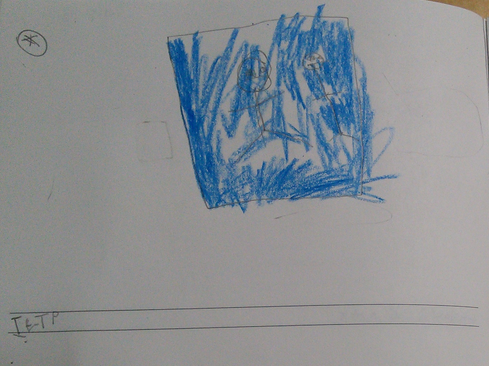Why Writing is One of the Most Social-Emotional Subjects
My classroom was bustling. Pencils scratched against fresh notebooks, crayons stained rainbows of colors on papers with each rub, and excited chatter bubbled as my students talked about their writing, themselves, and anything else they could think of. It's one of the things I've come to love about teaching kindergarten and first grade. The kids are generally excited about pretty much everything. There's little I ask them to do that they won't get excited about, as long as they can see themselves in it. And so, this student-centered, personal approach to writing workshop has really worked for me for the most part.
But I had one little guy the other day that it wasn't quite working for
Over the past few years or so, I've begun to really exercise my patience. When I see that kids aren't moving quickly, or when I see that they're at a standstill, I try to give them a little space, ask them if they need help, and move on. But for this student, in particular, that wasn't quite working. I'd passed by a few times, and with each passing, I noticed he hadn't made much more progress. Every time I came by, his paper was still blank, and he was still staring at it.
I know what you're thinking. It wasn't because he was off-task, and it wasn't because he was talking too much. It was just the opposite actually. He stared silently, even with peers around to him, to the point where he ended up going to sit at his own table -- a choice I offered to him, but didn't require of him -- so that he could have some "think time." I could practically see the writer's block sitting inside his forehead. It had created a barrier within him, one that was stopping any bubbling thoughts from getting out from between his synapses and onto the paper.
"What do you like to do?" I asked him. That was our prompt for the day, to write about our interests and favorite things.
"Uh," he contemplated, "I don't know."
"Well, crap," I said back to him. Just kidding, I didn't say that to him, but I thought it in my mind. How could I help him generate an idea if he wasn't able to discuss what he liked?
Then I thought, maybe the question was too subjective. It seemed that this experience -- the experience of having to write -- was too much stress, and the subjectivity and open-endedness of it all wasn't helping him one bit. So I went a bit more objective.
"Well, what did you do this weekend?" I tried.
"Uh," he said again.
My shoulders tightened. Please remember what you did, I thought to myself.
"I went to the pool," he finished.
"Wow! That sounds like such an interesting thing to write about. I'd love to know more about it. Did you have fun? Who did you go with?" I queried after a sigh of relief.
He nodded, signaling it was fun.
"I went with my dad."
"Great!" I replied. "Why don't you draw me a picture of that, so I can see what it looked like."
When I came back about 5 minutes later, he had drawn a picture in his notebook. I praised and praised him for taking a risk with his writing and trying one of the ideas we generated together.
"I know it's hard to come up with things to write about," I said, "but you can always write about something else the next day. You don't have to worry about finding the perfect idea."
While he never told me that was the issue, I could sense it. Perhaps he didn't even realize that this was the issue that he was having, and I'm certain that he didn't know this was the source of most writer's block.Most people don't realize just how social-emotional the experience of writing is. To kids, it takes a lot for them to muster up the energy in their tiny, underdeveloped hand muscles just to get one letter out. What's even tougher is when they mess up. Then they have to erase, all the while never being able to fully erase the mistake that they made. For some kids, it becomes a downward spiral, one that compounds shame over time, resulting in an aversion to the task entirely. It becomes so final to put something on paper that the thought is terrifying, creating a chronic case of writer's block, one that's really hard to undo the older children get.
I'm thrilled and inspired to work with these little guys, because I feel like I have the chance to overturn this at such a young age, to help them feel empowered by their words and by their mistakes before they become bogged down and discouraged by their still-developing abilities. What's more, I have the opportunity to help them see that writing is cyclical, dynamic, and perpetually imperfect.
"But writing's never perfect, Paul," another student blurted out shortly, "just like you said."

